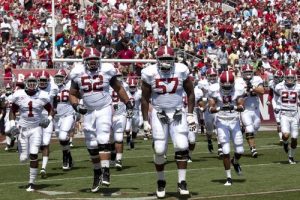Workers who have been shorted wages, break time, or other benefits can pursue claims for damages in two ways: An administrative process through the California Labor Commissioner’s Office and/or with a civil lawsuit. With both avenues, there are time limits on how long workers have to file these claims. 
The deadlines are called statutes of limitations, and they apply for just about every type of case and claim under the sun. For employment wage and hour or breach of contract claims, deadlines are typically somewhere between two and four years, depending on the type of claim. There may be a few narrow exceptions that allow for more time to file, but courts are generally inclined to stick to the hard stops.
If you have a strong suspicion that you’ve been cheated out of fair pay and other compensation, it’s important to discuss your legal options with an experienced Los Angeles employment lawyer.
What is a Wage and Hour Claim?
When our legal team talks about “wage and hour” claims or lawsuits, it’s terminology that’s sort of a catch-all for many different kinds of employer misdeeds or oversights that result in employees not being properly compensated for their time and labor. California wage and hour claims can refer to:
- Not paying workers minimum wage. (This has been an especially outsized problem for industries/companies that pay workers by-the-piece or the “piece rate” rather than an hourly wage.)
- Not properly and fully compensating workers for overtime.
- Denying workers the meal and rest breaks to which they are entitled.
- Failure to reimburse workers for business expenses (gas/mileage, office supplies, work tools/materials, etc.).
- Not properly maintaining worker pay records.
- Bouncing worker paychecks.
- Failure to pay workers their last paycheck.
- Unauthorized deductions, including skimming workers’ tips.
- Requiring workers to engage in work-related tasks without pay. This includes being on-call (call back or standby), off-the-clock bag checks every shift, refusing to pay workers for “unproductive time” (time spent at work/under the control of the employer, though not actively engaged in production work), and encouraging employees to work off-the-clock.
- Not providing hazard pay, when it’s provided as part of the employment agreement.
Most of these rights are limited to workers properly classified as “employees” as opposed to “independent contractors.” Knowing that employees have far more rights under the law than independent contractors, some employers intentionally misclassify employees as independent contractors. This allows them to avoid paying for things like minimum wage, sick leave, workers’ compensation, meal breaks, etc. Workers can successfully challenge a misclassification as an independent contractor in court by establishing the level of control the operation had over the worker’s day-to-day tasks, how closely related the worker’s contributions were to the employer’s core mission, and how the worker was paid.
Workers who are properly classified as independent contractors can still pursue wage theft claims, though they typically do so by alleging breach of contract or unfair competition rather than labor law violations.
 Orange County Employment Lawyers Blog
Orange County Employment Lawyers Blog











